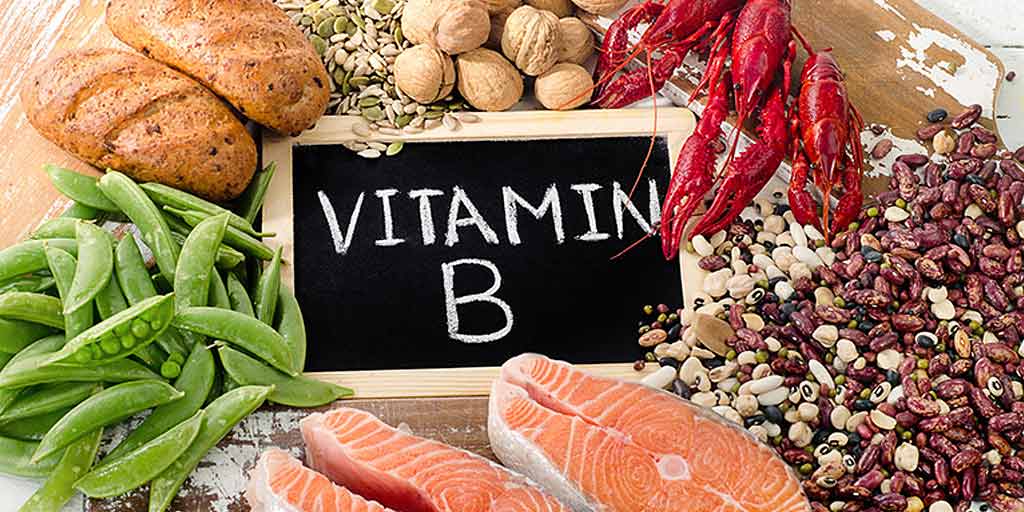Water Soluble Vitamins

Water-soluble vitamins are not soluble in fat. Instead, these vitamins dissolve in water. They are absorbed when we eat foods that have water-soluble vitamins. They are are not stored in our bodies. Instead, they travel through our blood all over the body. Whatever is needed is taken from the blood and the rest is excreted whenever we pee.
These vitamins need to be replaced often because they are not stored. Water soluble vitamins include vitamin C and the big group of B vitamins — B1 (thiamin), B2 (riboflavin), niacin, B6 (pyridoxine), folic acid, B12 (cobalamine), biotin, and pantothenic acid.
- Vitamin C is important for keeping gums, bones, and blood vessels healthy by helping in the production of collagen.
- Vitamin C also plays a role in wound/cut healing.
- Vitamin C is also helps the body absorb iron from food or supplements preventing or treating anemia.
- Vitamin C, an antioxidant, also helps our bodies fight off infections. Many people drink orange juice or take Vitamin C supplements when ill as it helps to shorten recovery (time needed to get better); regenerates other antioxidants.
- helps in the synthesis of neurotransmitter Norepinephrine.
- important for synthesis of carnitine, a small molecule that is needed for the transport of fat to mitochondria.
Foods rich in vitamin C include:
- Citrus fruits, like oranges
- Cantaloupe
- Strawberries
- Tomatoes
- Broccoli
- Cabbage
- Kiwi fruit
- Sweet red peppers
Deficiency of Vitamin C manifests as:
Scurvy: whose early symptoms include weakness, feeling tired and sore arms and legs. Late symptoms include decreased red blood cells, swollen gums, swollen joints, slow wound healing and bursting of blood capillaries leading to bleeding from the skin.

- The List of B vitamins include: B1, B2, B6, B12, niacin, folic acid, biotin, and pantothenic acid.
- B vitamins are important in obtaining the energy from digested and absorbed food.
They play a role in the formation of red blood cells, which carry oxygen throughout our bodies.

Foods rich in B vitamins include:
- Whole grains, such as wheat and oats
- Fish and seafood
- Poultry and meats
- Eggs
- Dairy products, like milk and yogurt
- Leafy green vegetables
- Beans and peas
- Fortified cereals
Deficiencies of B-complex vitamins manifest as:
- B1(Thiamine): Beriberi, poor appetite, depression
- B2(Riboflavin): cracked lips, sore throat, anemia
- B3(Niacin): Pellagra (diarrhea and mental confusion)
- B5(Pantothenic acid): anemia and nerve damage
- B6(Pyridoxine): anemia, atrophic tissues, poor resistance to disease
- B9(Folic acid): anemia (fatigue), possibly infertility, neural tube defects
- B12(Cobalamin): Pernicious anemia; increased stomach cancer risk

Choline is recently discovered nutrient. It is an organic, water-soluble compound that is neither a vitamin nor a mineral. It is discussed here because of its similarities to B Complex vitamins. Although small amounts are made by the liver the vast majority must come from the diet.
- It impacts liver function, healthy brain development, muscle movement, our nervous system and general metabolism.
- Cell structure: It is needed to make fats that support the structural integrity of cell membranes.
- Cell messaging: It is involved in the production of compounds that act as cell messengers.
- Fat transport and metabolism: It is essential for making a substance required for removing cholesterol from your liver. Inadequate choline may result in fat and cholesterol buildup in your liver.
- DNA synthesis: Choline and other vitamins, such as B12 and folate, help with a process that’s important for DNA synthesis.
- A healthy nervous system: This nutrient is required to make acetylcholine, an important neurotransmitter. It’s involved in memory, muscle movement, regulating heartbeat and other basic functions.

Foods rich in choline include:
- Lean chicken breast: 36%DV: 198.9mg
- Fish (salmon): 35%DV: 191.4mg
- Lean Pork Chops: 28%DV: 152.8mg
- Eggs: 27%DV:146.9mg in 1 large egg
- Navy Beans: 15%DV: 81.4mg
- Low-Fat Milk: 15%DV: 80mg per 16oz glass
- Broccoli: 11%DV: 62.6mg per cup
- Green Beans: 9%DV: 47.5mg per cup
550mg = 100% Daily Value(%DV)
If choline levels are too low, serious symptoms and effects of deficiency may arise, including:
- Memory loss
- Muscle pain
- Cognitive decline
- Damage to nerves
- Disability in learning
- Insomnia
- Increase in fatigue
- White blood cell dysfunction
- Dysfunction of the kidney, pancreas, brain, and nervous system.
